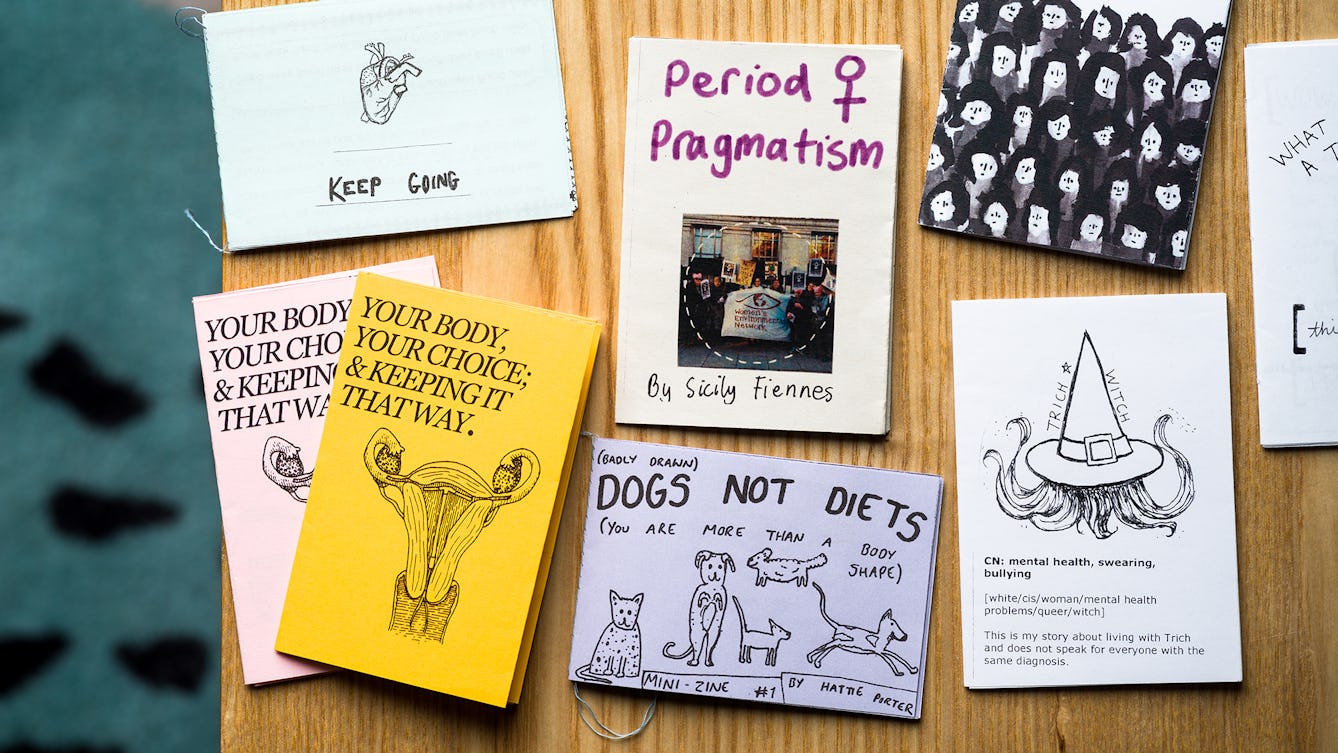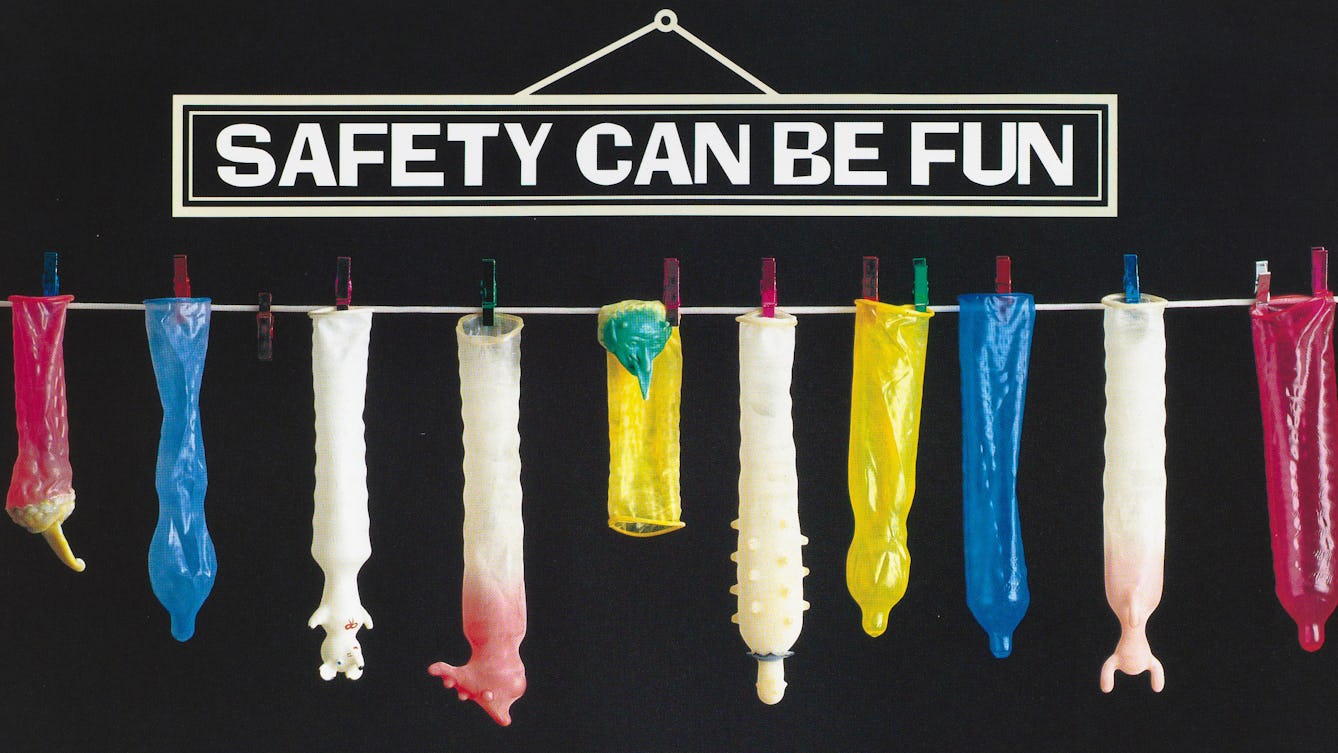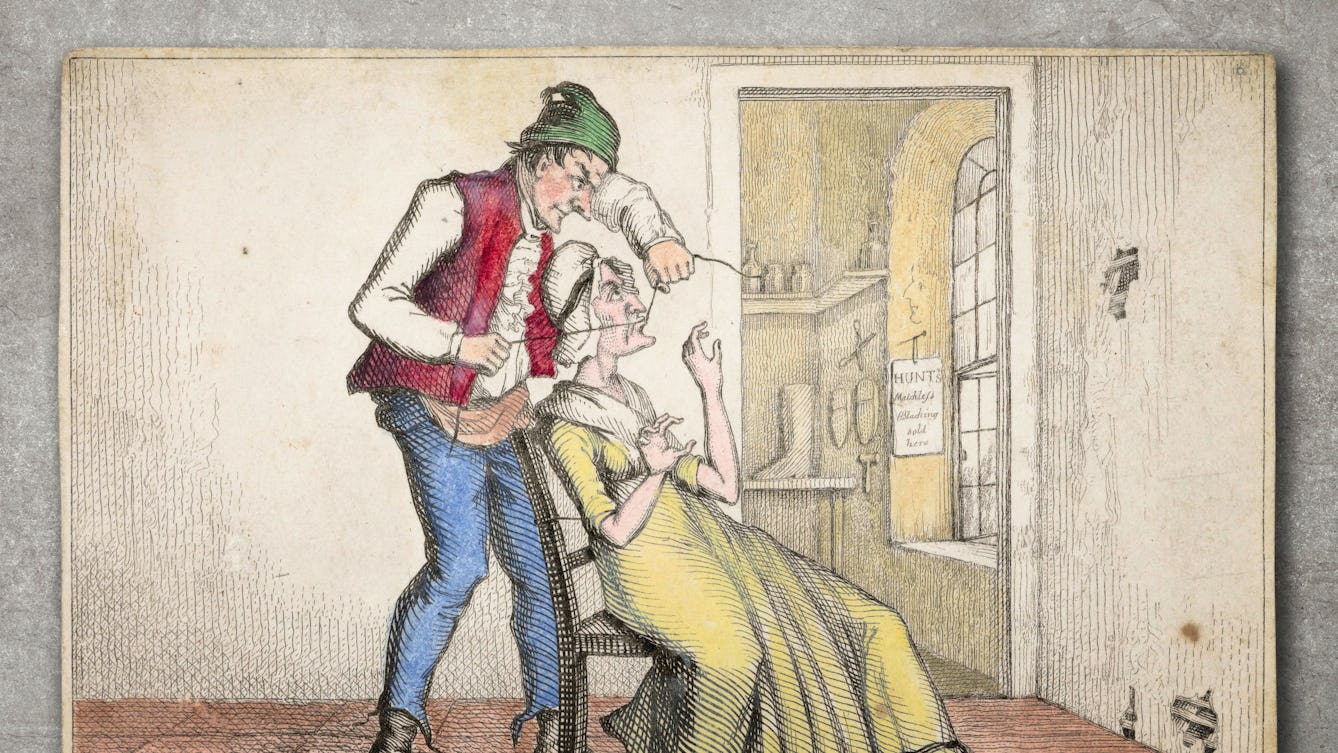
- Article
- Article
Six personal health zines that might change your life
Personal zines put health conditions back in the hands of the people who experience them. Here are six that Wellcome Collection staff love.

- Article
- Article
Found items
Books leave their traces in our minds, but we leave traces of ourselves in books too, as these fascinating items found inside old works show.

- Article
- Article
Getting around the rules of sex education
What should we and shouldn’t we teach our teens about sex, inside and outside of the classroom?

- Book extract
- Book extract
“Above resistant pavements, I floated”
In this extract from ‘Living with Buildings and Walking with Ghosts’, walk with Iain Sinclair through the streets of London.

- Article
- Article
Why gene editing can never eliminate disability
In a world where DNA testing and gene editing offer ways to eliminate certain disabilities, Jaipreet Virdi explores a more accepting and inclusive approach.

- Article
- Article
Transforming the decorative into dissent
Discover how embroidered messages by two ‘troublesome’ women in 19th-century asylums are mirrored in the therapeutic quilting work of writer Rachel May.

- Article
- Article
NHS Blue: the colour of universal healthcare
The 1980s and 1990s saw ideas from the world of business infiltrating the NHS, including the introduction of an internal market, followed by a corporate branding exercise.

- Article
- Article
Going viral in the online anti-vaccine wars
‘Anti-vaxxers’ are taking their message online using powerful images as well as words. But is the pro campaigners’ response any better?

- Long read
- Long read
Primodos, paternalism and the fight to be heard
Journalist Florence Wildblood examines the case of Primodos – a conveniently quick but risky hormone pregnancy test that was prescribed in the 1960s and ’70s – and profiles two women at the story’s shocking heart.